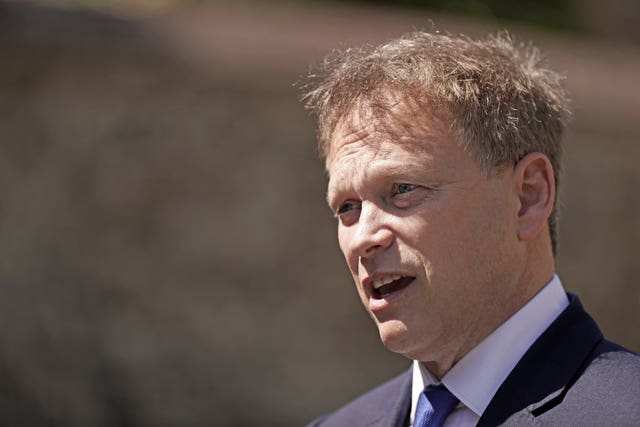US gas pipeline leaks occur every 40 hours: report

U.S. natural gas pipelines are experiencing the equivalent of one leak every 40 hours, a new report has found.
From 2010 to 2021, almost 2,600 such leaks occurred that were serious enough to require federal reporting — with 850 resulting from fires and 328 from explosions, according to the study, released by U.S. Public Interest Research Groups (U.S. PIRG) Educational Fund.
These incidents killed 122 people and injured 603, with total costs in property damage, emergency services and the value of unintentionally released gas totaling nearly $4 billion, the authors observed.
Such events also led to the leakage of 26.6 billion cubic feet of natural gas — the equivalent to more than 2.4 million passenger vehicles driven for a year, according to the report, published together with Environment America Research & Policy Center and the Frontier Group think tank.
“House explosions and leaking pipelines aren’t isolated incidents — they’re the result of an energy system that pipes dangerous, explosive gas across the country and through our neighborhoods,” co-author Matt Casale, environment campaigns director for U.S. PIRG Education Fund, said in a statement.
“It’s time to move away from gas in this country and toward safer, cleaner electrification and renewable energy,” he added.
To draw their conclusions, Casale and his colleagues sifted through federal leak reporting data available through the U.S. Department of Transportation’s Pipeline and Hazardous Materials Safety Administration.
The authors — who referred to natural gas by its primary component of methane rather than using the word “natural” — stressed that the amount of gas leaking into the environment is likely far greater than the quantity captured in federal leak reporting.
Citing a Science study from 2018, they noted that leaks from gas lines over two decades had nearly doubled the climate impact of natural gas.
The resultant warming was on par with that of carbon dioxide-emitting coal plants, the study found, noting that while methane doesn’t persist in the atmosphere as long as carbon dioxide does, its warming effects are much stronger.
Natural gas releases can occur intentionally when a utility needs to lower pressure or empty pipelines for maintenance, or they can happen due to wear, equipment failure, natural causes, accidental force or puncture, according to the U.S. PIRG report.
While Environmental Protection Agency data showed that emissions from natural gas transmission had fallen significantly between 1990 and 2016, progress has slowed since, the authors found.
They also expressed concern that some information regarding deaths and injuries might not be available in the federal leak reporting database, since not all the leaks occur in the pipeline system.
A considerable volume of leaks might be overlooked particularly in urban areas, the report found, citing a 2021 Harvard University study.
That study, they explained, found that methane emissions from natural gas infrastructure and use in U.S. cities was two to 10 times greater than federal estimates indicated. Meanwhile, Boston’s emissions were six times higher than those reported by the Massachusetts Department of Environmental Protection.
More than half of those emissions came from non-pipeline sources both in and out of homes, according to the U.S. PIRG report.
“Leaks, fires and explosions are reminders that transporting methane gas is dangerous business,” report lead author Tony Dutzik, associate director and senior policy analyst at Frontier Group, said in a statement.
Moving forward, the report authors recommended that the U.S. curb its reliance on natural gas for home heating and cooking as well as for electricity generation.
They argued that policymakers should instead incentivize the transition to all-electric buildings and renewable energy. And in the interim, they suggested focusing gas infrastructure investments on fixing leaks.
“Fully protecting the public requires us to reduce our dependence on gas,” Dutzik added.


:quality(70)/cloudfront-eu-central-1.images.arcpublishing.com/thenational/QMOB4WECR3AGGZKYKJMKVLXHQA.jpg)





:quality(70)/cloudfront-eu-central-1.images.arcpublishing.com/thenational/ZPOIZCHEBOLOXULNLZHAY3266A.jpg)
:quality(70)/cloudfront-eu-central-1.images.arcpublishing.com/thenational/Z43N5GK4ASTMZJ2E6LDYEYWDCE.jpg)
:quality(70)/cloudfront-eu-central-1.images.arcpublishing.com/thenational/SYRATGKP3UTW6GJLCRL7BWZXHI.jpg)
:quality(70)/cloudfront-eu-central-1.images.arcpublishing.com/thenational/LGKPGUUD6HRTT4KQMMCUFHIALA.jpg)
:quality(70)/cloudfront-eu-central-1.images.arcpublishing.com/thenational/QWMJDSIWLSQWGWDYVMM4EZMNDE.jpg)
:quality(70)/cloudfront-eu-central-1.images.arcpublishing.com/thenational/3N3M7HYPGCXXCQNFZAGKYKIUIY.jpg)
:quality(70)/cloudfront-eu-central-1.images.arcpublishing.com/thenational/3OQDJVOA5BEQU75WTYPMFTEK4Y.jpg)
:quality(70)/cloudfront-eu-central-1.images.arcpublishing.com/thenational/EUVIMRF33IG2P324XYAPW2C6UM.jpg)
:quality(70)/cloudfront-eu-central-1.images.arcpublishing.com/thenational/IPVUPWOLERBKMX4M36T6NMG5HQ.jpg)
:quality(70)/cloudfront-eu-central-1.images.arcpublishing.com/thenational/MO5ETZJY4NOAAASZO7JYOHR37Y.jpg)
:quality(70)/cloudfront-eu-central-1.images.arcpublishing.com/thenational/EBWFQWOL2OIJ5HS3DYG6SUI5HM.jpg)
:quality(70)/cloudfront-eu-central-1.images.arcpublishing.com/thenational/MDXMP2KRJHSC4ROQYVZLUXTPSI.jpg)
:quality(70)/cloudfront-eu-central-1.images.arcpublishing.com/thenational/UEXZ4T3JZ4NOXABJ2VDJW5VXAU.jpg)
:quality(70)/cloudfront-eu-central-1.images.arcpublishing.com/thenational/H2SNCMXKRMWXWZT26KP6SW5RS4.jpg)
:quality(70)/cloudfront-eu-central-1.images.arcpublishing.com/thenational/AUXBKHLQ4RTZSGYZUP6VAIY7BM.jpg)
:quality(70)/cloudfront-eu-central-1.images.arcpublishing.com/thenational/KYPOAT7MB53UJCWGCIRO44L4ZA.jpg)
:quality(70)/cloudfront-eu-central-1.images.arcpublishing.com/thenational/QP55KHJZRWVIGFBN4VBLA76PQM.jpg)
:quality(70)/cloudfront-eu-central-1.images.arcpublishing.com/thenational/UK67HMHV5WEMQYBLYP65WVQY2I.jpg)
:quality(70)/cloudfront-eu-central-1.images.arcpublishing.com/thenational/W75GJ7C7DV75MAQJRK2WXLDKDQ.jpg)
:quality(70)/cloudfront-eu-central-1.images.arcpublishing.com/thenational/KVGPT4GCTWDOA5W2B3NAHARZGA.jpg)
:quality(70)/cloudfront-eu-central-1.images.arcpublishing.com/thenational/ZA6ZL3IZZ5QXGBEAYSKDHN3BVQ.jpg)
:quality(70)/cloudfront-eu-central-1.images.arcpublishing.com/thenational/4I5C7EMCL5HKHA3LKU2OQYZCLU.jpg)
:quality(70)/cloudfront-eu-central-1.images.arcpublishing.com/thenational/63EXFZKBKV4KELOUTSDWHA6R54.jpg)
:quality(70)/cloudfront-eu-central-1.images.arcpublishing.com/thenational/6GB4DOMG5FDQUMDS4SUMVCRWTI.jpg)
:quality(70)/cloudfront-eu-central-1.images.arcpublishing.com/thenational/KQC7PPNVUN2TNTCVC32QMX5JVA.jpg)
:quality(70)/cloudfront-eu-central-1.images.arcpublishing.com/thenational/F6SCBA4KMN5WB4EQ4LWXJ2Z5WE.jpg)
:quality(70)/cloudfront-eu-central-1.images.arcpublishing.com/thenational/NOP2A6CWLMI2NL7FBVGTCGOUMI.jpg)
:quality(70)/cloudfront-eu-central-1.images.arcpublishing.com/thenational/7AQXYLEM4IYBA6F64UZBBSU3EY.jpg)
:quality(70)/cloudfront-eu-central-1.images.arcpublishing.com/thenational/2ED4HWMJSPMW5LK7PCGQER2TZU.jpg)
.jpg)
.png)
.jpg)



:quality(70)/cloudfront-us-east-1.images.arcpublishing.com/bloomberglinea/Y7HQFNIHHJD75FWGJJYBA724ZE.jpg)


